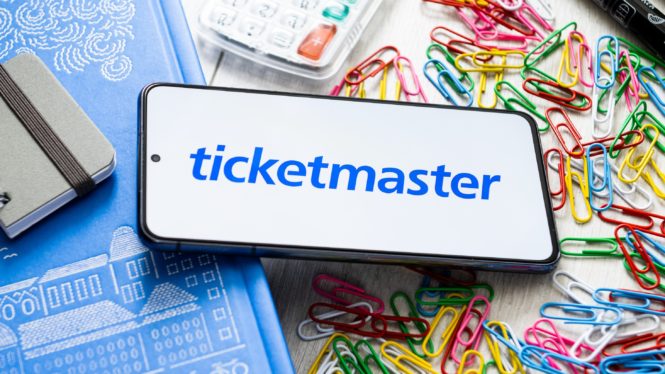President Joe Biden announced a major accomplishment in his battle against ticketing junk fees Thursday (June 15), but the impact is likely to be minimal.
After meeting with executives at Ticketmaster, SeatGeek and Dice, among others, those companies agreed to adopt all-in ticket pricing for their sales. For Ticketmaster, that will specifically impact shows at the more than 250 venues owned by parent company Live Nation in the United States — not all its ticketing clients.
The companies’ commitments to all-in pricing are part of a larger effort under the Biden administration and the Federal Trade Commission to reign in billions of dollars in junk fees charged to consumers by banks, hotel companies and entertainment groups. And while the buy-in from some of the world’s largest ticketing companies is an important milestone, the voluntary change will likely only impact a small percentage of tickets and give ticket sellers who conceal add-on fees to consumers until the end of the checkout process a competitive advantage over firms who display the full price at checkout.
The limited impact of Thursday’s announcement underscores the challenges lawmakers face as they attempt to come up with legislative fixes for the ticketing industry in the wake of disruptions to Taylor Swift’s high profile Eras tour. While politicians like Senator Amy Klobuchar (D-Minn.) have pointed the finger at Ticketmaster’s dominant market share, a growing coalition of music industry insiders under the #FixTheTix banner have blamed scalpers for the disruptions to the Taylor Swift sale and continued bot attacks on the ticketing industry.
While much of the battle between Ticketmaster and secondary sites like Stubhub and SeatGeek comes down to fundamental disagreements over artists’ rights to control their tickets and consumers’ rights to buy and sell tickets at whatever price the market will bear, the elimination of last minute fees added to tickets at checkout — sometimes as high as 25% to 35% of the face value of the ticket — had support from both primary and secondary ticket sellers.
In order for the all-in pricing to work, however, most experts agree that it must be mandated by law. Otherwise, many ticketing companies, sports teams and venues are unlikely to voluntarily change their pricing policy out of concern it could be a competitive disadvantage for their facility.
Even Thursday’s commitment from Ticketmaster has no impact on the hundreds of sports venues that sell millions of tickets to games and concerts each year. That’s because Ticketmaster cannot force teams within National Hockey League, National Basketball Association and National Football League to adopt all-in pricing at their stadiums and arenas, despite holding the exclusive ticketing rights to approximately 80% of the teams within those three leagues.
The same goes for the hundreds of independently owned venues for which Ticketmaster provides ticketing services.
Looking at the top 40 venues on Billboard‘s midyear Boxscore charts, while most are ticketed by Ticketmaster, none are owned by parent company Live Nation and none of the facilities will initially offer all-in pricing on their websites or ticket sales pages under the new commitment. The same goes for the hundreds of tours Live Nation promotes as well. That’s because standard ticketing contracts allow venues — and not Ticketmaster or other ticketing companies — to decide how tickets are sold, how much money in fees is added to a ticket, and how and when the breakdown between face value and add-ons like facility fees are displayed to consumers.
Studies show that ticketing companies that don’t use all in pricing have a competitive advantage over companies that show the full price of a ticket upfront. A consumer study by Stubhub in the 2010s shown that fans were more likely to purchase a ticket, even if it had a higher checkout price, if the initial price they were shown was lower than comparable tickets on other websites prices
“Live Nation’s promise today to give Americans price transparency at their venues is encouraging, but we need all-in pricing at all venues, for all live events, and on all ticket selling services now,” Rep. Bill Pascrell (D-N.J.) wrote in an email to Billboard, noting his bill, the BOSS and SWIFT ACT legislation would “mandate in law all-in pricing for true transparency.”
“Not until every seller offers all-in pricing can consumers get the comparison shopping experience for tickets that they deserve,” he wrote.
Critics of the BOSS and SWIFT ACT argue that while the legislation does improve transparency, it includes protections for ticket scalpers that would make it impossible for artists to protect their concert tickets from price gauging.
“Live Nation is proud to provide fans with a better ticketing buying experience,” said Tom See, president of Live Nation’s Venue Nation, in a statement. “We have thousands of crew working behind the scenes every day to help artists share their music live with fans, and we’ll continue advocating for innovations and reforms that protect that amazing connection.”
Stephen Parker, executive director of the National Independent Venue Association, told Billboard in an email, “Up-front pricing should be the start of comprehensive ticketing reform that protects consumers from price gouging and deceptive practices by predatory resellers.”
“We applaud the President for today’s meeting and look forward to working with his Administration and Congress to make comprehensive, bipartisan ticketing reform a reality,” Parker continued.
The National Independent Talent Organization, a group representing independent talent booking agents, applauded the voluntary change at Ticketmaster, but noted the change was “an important first step.”
“Until Congress acts to eliminate excessive fees and secondary ticketing is carefully regulated,” the organization said in a statement, “millions of consumers will still be the victim of predatory ticketing practices.”
https://www.billboard.com/pro/ticketmaster-show-full-prices-upfront-not-all-concerts/





